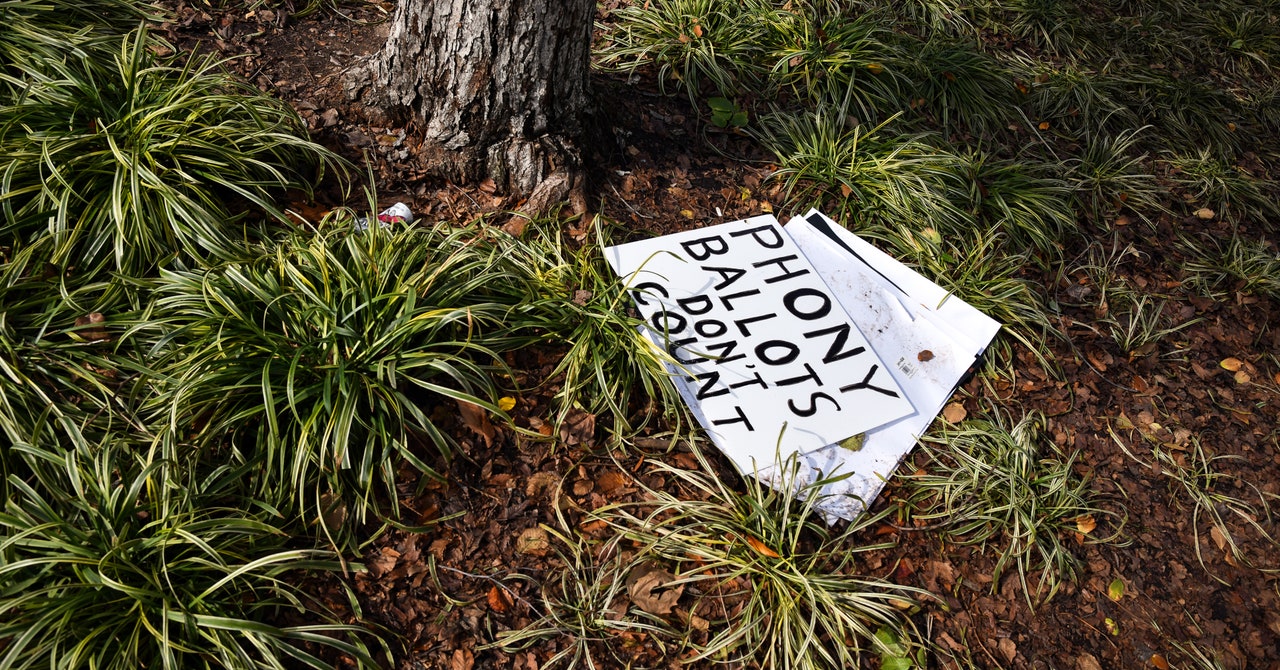A week after the election, the Election Integrity Network, a well-funded group that has been at the forefront of the election denial movement, hosted a meeting to discuss next steps. It was attended by almost 200 members.
“The red wave came in on very slim margins, so it is very important that we keep in mind during our celebratory times, that we have a lot more work to do,” Kerri Tolosko, the executive director of the group, said during the meeting, according to a recording reviewed by WIRED. She then added that the group needs to focus on elections in the future, including the 2026 midterms, while warning about vague election fraud conspiracies.
“Obviously, we’re not going away,” said Toloczko. “We have new elections coming up. Virginia has one every year. We’ve got the midterms. New elections [mean] new games. We don’t know what they’re playing at yet, but I guarantee you they’ll be playing at something. So we need to figure out what that is.”
The group’s founder and former Trump adviser Cleta Mitchell, continued to push the baseless claim that a flood of illegal immigrants were voting in US elections, when that figure has been shown to be vanishingly small. She said the group “had a lot of work to do” on the issue and she “hoped the incoming administration will take it seriously.”
While Mitchell and Election Integrity Network haven’t stopped, some groups in the election denial movement are pausing to reassess and see what’s next for them.
Catherine Engelbrecht, the co-founder of True the Vote, one of the most prominent election denial groups that has organized drop box monitoring and large scale voter challenges, said last week that she was going on “a brief hiatus.”
“Our focus is shifting toward supporting grassroots organizations in building local influence and advocating for common-sense reforms,” Engelbrecht wrote in her channel on the fringe platform Locals.
For Lindell, who approaches election denial with the fervor of a religious zealot, the idea of stopping now is not something that has ever crossed his mind, even if his efforts have left him with no money and huge legal bills.
“I have to [keep going], or we lose our country,” says Lindell, adding that if he has to borrow money to continue funding his efforts he will. “I wouldn’t trust any election done with computers ever. I will never stop until we get the paper ballot, hands counted.”

